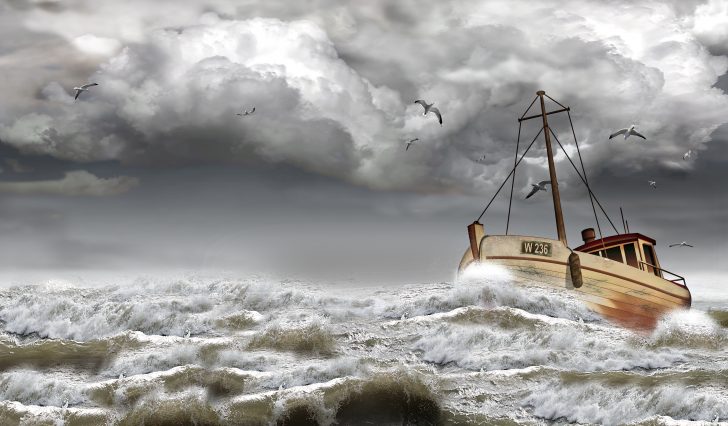by Capt. Jim Kalvin
I’ve always liked the month of September for boating and fishing. Not because I enjoy going out in thunder squalls – but because I like going out after they come through. You work the day through, then put the tools away during the afternoon “Boomer”. Lots of times there are hours of daylight left after the storm passes. As Mother Nature rests and catches her breath, the waterways are slicked-out and absolutely empty! The tide cycle is irrelevant as the mangrove islands and backwaters come alive with the coolness in the air and the “food” that is washed into the water by the rain. You can still enjoy the solitude of our Paradise from time to time – you just have to plan ahead, and let our seasonal weather pattern run interference for you. You’ll have to find a way to handle the mosquitoes, but there are ways to deal with that.

Know the design limitations of your craft as well, and work within those parameters. Years ago I was coming in from an off-shore dive trip and we came across a gentleman in a 20’ pontoon boat at about 12 miles out. He was out of fuel and drifting westward. He had an anchor, but it only had 50’ of line with no chain, and he had no VHF radio. The weather was deteriorating, and I had nothing but diesel on board. So we brought him on our boat, hooked up his pontoon, and towed it back to the City Dock. As we came in the Pass, lightning was flashing, thunder was booming and the wind was picking up. That was late in the afternoon and I was likely the last boat coming in at that day. I shudder to think of what would have happened if we had not happened upon him when we did.
So….safety first, and remember to check your safety features – lights, horn, life preservers, and your VHF radio. Remember that the Coast Guard doesn’t monitor your cell phone and it may not work anyways in inclement weather!
